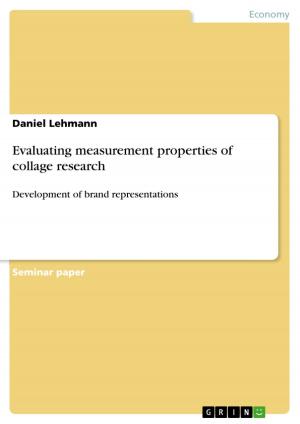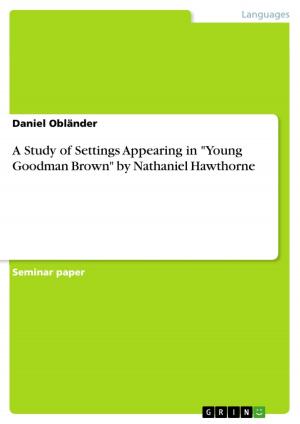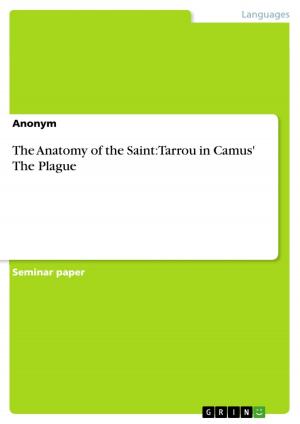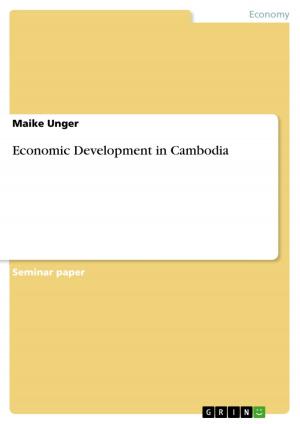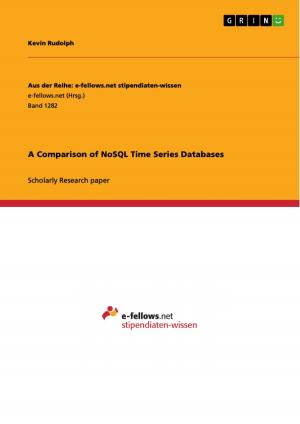Get-passive in Singaporean English - A corpus-based study
A corpus-based study
Nonfiction, Entertainment, Drama, Anthologies| Author: | Eleni Papadopoulou | ISBN: | 9783638395618 |
| Publisher: | GRIN Publishing | Publication: | July 12, 2005 |
| Imprint: | GRIN Publishing | Language: | English |
| Author: | Eleni Papadopoulou |
| ISBN: | 9783638395618 |
| Publisher: | GRIN Publishing |
| Publication: | July 12, 2005 |
| Imprint: | GRIN Publishing |
| Language: | English |
Seminar paper from the year 2005 in the subject English Language and Literature Studies - Linguistics, grade: 2, University of Sheffield, 10 entries in the bibliography, language: English, abstract: 1. Introduction First of all, and before I proceed with the actual description and basic layout of my term paper, it would be quite interesting to quote the thesis that roused by interest and became my first motivation concerning the study of a certain grammatical phenomenon in Singaporean English. As English is the most widely used language in the world, and it is used by at least 750 million people in addition to being the mother tongue of about 350 million people, it is therefore characterized by a great deal of variation. Nevertheless, it is remarkable that although these regional varieties differ from each other in terms of pronunciation and vocabulary, their grammar is significantly similar (cf. BACHE/ DAVIDSEN 1997: 4). Before we can go on to find out whether this assumption is also verified in the English of Singapore, I will present the main sections of my study.The main and most important part of this term paper is based upon a personal corpus- based study, which should from the start be clearly characterized as relatively restrictive and not quite large in size, in order to avoid any further problems and misunderstandings. This study I mentioned above concerns and tries to closely examine the overall frequencies of get- constructions, and to be more specific, we will try to examine the phenomenon of the get- passive in the English of Singapore, always with the hidden desire to finally come up with a reasonable conclusion towards the end of the paper. In order to succeed in this procedure, after having presented in brief the history of Singapore itself, and later on of the English language in this country, we will try to give some short definitions of the most basic notions, which are used in the following pages. Then, we will proceed in describing the corpora, as well as the methodology used. Moreover, we will point out the problems that automatically arise from this corpus- based study as a whole on the one hand, and from the fact of defining the get- passive itself on the other hand. After making these essential things clear, we will become more familiar with the theories regarding this subject; theories and theses that already exist, they have already been uttered and can be found in various books of grammar of the English language....
Seminar paper from the year 2005 in the subject English Language and Literature Studies - Linguistics, grade: 2, University of Sheffield, 10 entries in the bibliography, language: English, abstract: 1. Introduction First of all, and before I proceed with the actual description and basic layout of my term paper, it would be quite interesting to quote the thesis that roused by interest and became my first motivation concerning the study of a certain grammatical phenomenon in Singaporean English. As English is the most widely used language in the world, and it is used by at least 750 million people in addition to being the mother tongue of about 350 million people, it is therefore characterized by a great deal of variation. Nevertheless, it is remarkable that although these regional varieties differ from each other in terms of pronunciation and vocabulary, their grammar is significantly similar (cf. BACHE/ DAVIDSEN 1997: 4). Before we can go on to find out whether this assumption is also verified in the English of Singapore, I will present the main sections of my study.The main and most important part of this term paper is based upon a personal corpus- based study, which should from the start be clearly characterized as relatively restrictive and not quite large in size, in order to avoid any further problems and misunderstandings. This study I mentioned above concerns and tries to closely examine the overall frequencies of get- constructions, and to be more specific, we will try to examine the phenomenon of the get- passive in the English of Singapore, always with the hidden desire to finally come up with a reasonable conclusion towards the end of the paper. In order to succeed in this procedure, after having presented in brief the history of Singapore itself, and later on of the English language in this country, we will try to give some short definitions of the most basic notions, which are used in the following pages. Then, we will proceed in describing the corpora, as well as the methodology used. Moreover, we will point out the problems that automatically arise from this corpus- based study as a whole on the one hand, and from the fact of defining the get- passive itself on the other hand. After making these essential things clear, we will become more familiar with the theories regarding this subject; theories and theses that already exist, they have already been uttered and can be found in various books of grammar of the English language....



